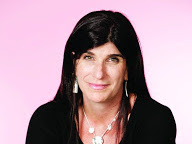 |
| Joanne Fedler |
Food, eating and cooking are almost inherent to Jewish DNA, leading to an intense relationship with food. Equally, emigration is woven into Jewish history and continues to impact on us today. Ex-South African author Joanne Fedler delves into these two arenas in her new autobiographical novel When Hungry, Eat. She chats to the CJC about Judaism’s spiritual nourishment, the experience of emigration, and how South Africans have “fat souls”.
“It’s a story about letting go of the things you love — whether it’s a bad eating habit, your beloved homeland or a way of life, and making a ‘home’ in a place of less,” says Fedler of When Hungry, Eat. The book opens with Fedler realising she didn’t want to be ‘fat and forty’: “I saw a photograph of myself on the beach in a bikini and I thought, ‘that’s just wrong.’ I couldn’t reconcile how I felt and how I looked — I saw someone who had lost her way.”
Making an appointment with the “Food Fascist”, she began a journey of losing not only kilograms, but also the heaviness on her heart. As she takes us back to her childhood in Johannesburg, her Shabbat dinner tables and her work with women in South African NGOs, her story is one to which we can all relate.
But it is her portrayal of Judaism’s intrinsic connection with food that is particularly pertinent: “Judaism is a poetic tradition, rich with the mysticism of the Kabbalah and the interpretations of the stories in the Torah. It expresses this symbolism through food, which is a metaphor for a deeper spiritual nourishment. By holding this awareness of how I’m ‘feeding my soul’ whenever I put anything to my mouth, I’m tied to my ancestry as well as to my own presence in whatever I’m doing,” explains Fedler.
The emptiness of emigration Fedler grew up in Johannesburg, studied law at Yale and later lived in Cape Town. Deeply involved in South African society, she worked as a women’s rights advocate and counselor of abused women, and was the CEO of a not-for-profit advocacy centre.
Therefore her decision to emigrate to Sydney had a profound and painful effect on her identity. In the book she describes the difficulties she faced and her guilt at robbing her children of extended family — essentially an experience of emigration that many of us don’t hear about from those who have left for Australian shores.
“As anyone who has had to let go of someone they love to emigration knows, the loss is endless and incomplete. It creates a hunger that is never quite satisfied, because you’re always living on a ‘diet.’ Then when you see your family on visits, it’s like having a binge,” she says. “Emigration is a deeply fragmenting experience for everyone involved, because it shatters what the human heart understands by ‘home’ and ‘family.’ I think all we can do is hold that awareness, and work at making a home wherever we are.”
But it is South Africa and her Judaism that has shaped who she is today. “Being both Jewish and South African has made me passionate about social justice. Jews are a powerful force in this world — we are more than ‘survivors,’ we are spiritual warriors. We have a duty to live with the sacred awareness that we are tasked with being a ‘light unto other nations’.” Hout Bay, herring and hunger
What does Fedler miss most about South Africa? “The people — South Africans have fat souls!” she says. “In Cape Town, I miss the mountain, Hout Bay snoek and chips, swimming in Muizenburg, coffee with my friend Ilze at Olympia Café… all of it.”
And despite a new approach to eating, Fedler lists teiglach, kneidlach, chopped herring, charoset, chicken soup, matzo kugel, pickled herring and challah as just some of her favourite Jewish foods.
What has been the most important lesson Fedler has learnt on her journey of weight loss and redefining her relationship with food? “That it is okay to be hungry. Hunger makes you grateful, compassionate and opens you to a deeper relationship with yourself. I also learned that the best way to satisfy my own hunger is to feed someone else.”











